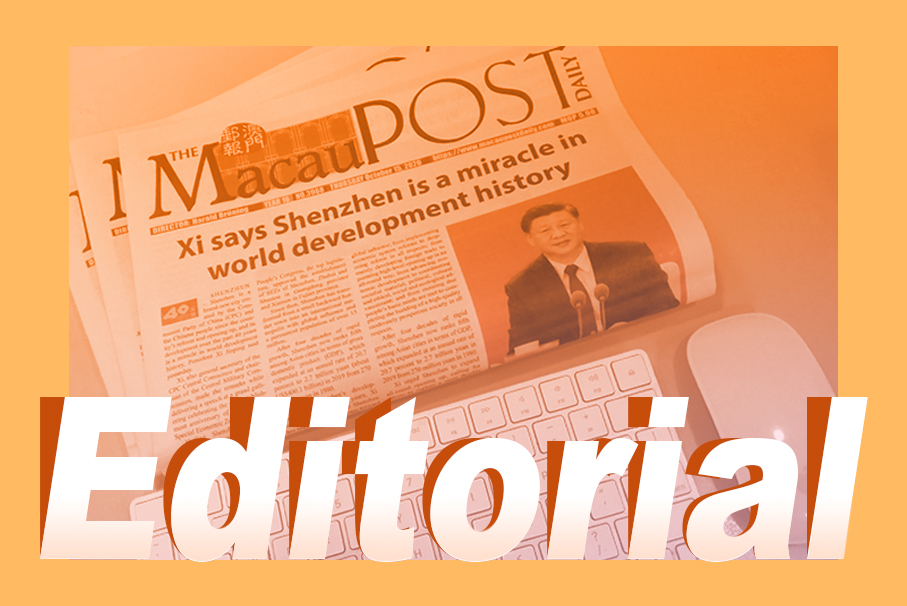Typhoons and elections share certain commonalities – their outcome is hard to predict and they tend to spring surprises.
This is what happened when Super Typhoon Hato hit Macau on August 23. Besides, Sunday’s post-typhoon election was virtually unpredictable and, consequently, sprang a major surprise resulting in three newcomers to the legislature and two failed re-election bids, apart from a raft of other surprises.
No doubt, the top winners of the direct election are the Macau-Guangdong Union (UMG) headed by building constructor Mak Soi Kun and the Union for Development (UPD) headed by Ella Lei Cheng I of the Macau Federation of Trade Unions (aka Gung Luen). Both groups were the only ones among the 24 rival groups that managed to win two seats each – not an easy feat considering that Macau’s proportional representation system favours small groups.
The three newcomers to the legislature’s hemicycle come from rather different political backgrounds: Sulu Sou Ka Hou is a vice-president of the New Macau Association (NMA), the city’s oldest “pro-democracy” organisation; Agnes Lam Iok Fong, an academic and former journalist who pursues a middle-of-the road approach towards politics as head of the big-tent Macau Civic Power community organisation; and Leong Sun Iok, Lei’s running mate and fellow unionist.
Apart from Sou, veteran “pro-democracy” legislators Ng Kuok Cheong and Au Kam San succeeded in their re-election bids by heading formally separate but ideologically similar electoral groups.
Civil service unionist Jose Coutinho succeeded in his re-election bid but his New Hope group lost one of its two seats in the outgoing legislature. Coutinho is ideologically close to the “pro-democracy” agenda of the electoral groups headed by Sou, Ng and Au.
Macau’s “pro-democracy” advocates call for the election of the chief executive by popular vote and the election of all legislators by universal suffrage. Currently, the chief executive is elected by a 400-member committee while 14 of the city’s 33 lawmakers are directly elected by popular vote. The government has said that democratic development must be gradual and consensual.
Fujianese community leader Chan Meng Kam’s organisation – Alliance for Common People Building Up Macau (API) – won two seats by fielding two separate groups, one seat down from three years ago when the alliance contested the election with just one group. Chan chose not to seek re-election. There is speculation that he may run for chief executive in 2019.
Casino executive Angela Leong On Kei’s New Macau Development Union (NUDM) failed in its bid to double its number of seats to two. However, Leong, the fourth wife of gaming mogul Stanley Ho Hung Sun, was still re-elected with the seventh highest number of votes among the 14 successful candidates.
The direct election’s biggest shock was Melinda Chan Mei Yi’s ejection from the legislature. Chan headed the Alliance for Change (MUDAR) which represented, among others, gaming and tourism industry staff.
The new line-up after the direct election comprises four “pro-democracy” lawmakers (Coutinho, Au, Ng and Sou), a centrist (Lam), four lawmakers representing traditional community interests – labour, neighbourhood associations (Kai Fong) and women (Lei, Ho Ion Sang, Wong Kit Cheng and Leong Sun Iok), and five lawmakers from different business backgrounds (Mak, Si Ka Lon, Angela Leong, Zheng Anting and Becky Song Pek Kei).
Angela Leong is the only directly-elected lawmaker from the gaming sector in the incoming legislature.
One can only hope that the legislature’s youngest member, 26-year-old Sou, will refrain from the asinine antics that got some of his “pro-democracy” counterparts in Hong Kong into deep trouble. Anyhow, the Hong Kong-style classification of “pro-Beijing” and “anti-Beijing” lawmakers makes no sense in Macau where the city’s belonging to China has never been an issue – even when it was still under Portuguese administration.
Hong Kong media covering Macau should have realised long ago that Hong Kong and Macau are politically, socially, economically and culturally so different that they could be located on different planets.
There is little doubt that the authorities’ inefficient response to Typhoon Hato had a major impact on Sunday’s election result. I am quite sure that some of the surprises wouldn’t have happened without Hato. The surprising election outcome should serve as a stark reminder to the government that it needs to improve its administrative efficiency, not just in response to natural disasters. Chief Executive Fernando Chui Sai On was right when he acknowledged in his first post-typhoon press conference that “not enough” had been done to tackle Hato’s aftermath. His frank admission should be the right way forward.
After all, while Hong Kong’s manifold problems are inherently political, Macau’s problems are principally managerial in nature.
Our new legislature starting work next month should focus on practical issue to help improve the city’s governance and people’s livelihoods. A hyperpartisan legislature as in Hong Kong does not serve the public interest.





